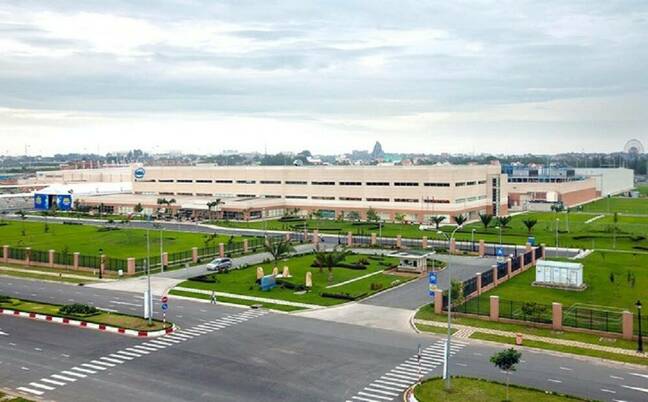This article is more than 1 year old
Not so good morning Vietnam, as government announces, then buries news of Intel investment
$3.3 billion may or may not be on its way to expand Chipzilla's Ho Chi Minh City presence
The Vietnam government appears to have jumped the gun by announcing a potential $3.3 billion investment by Intel.
On Tuesday, the government of Vietnam reported 2023 foreign direct investment in Ho Chi Minh City had reached $7.4 billion. In the announcement, city official Pham Tuan Anh indicated the $7.4 billion figure was contingent on the success of a multi-billion dollar deal with Chipzilla, plus a more stable socio-economic and inflation situation.
The next morning, written mentions of Intel had disappeared from the site and foreign direct investment totals had been reduced – to between $4.1 and $4.5 billion.
However, a photo of Ho Chi Minh's Intel facility remained in the announcement posted on the country's Central Economic Commission website.
The facility is located in Saigon Hi-Tech Park and began production in 2010. It's Intel's largest chip packaging and testing factory and represents an investment of $1.5 billion.
The $7.4 billion dollar figure – and involvement of Intel – were still included on other Vietnamese news sites that reported the initial announcement.
- Intel and Samsung impacted as COVID closes electronics factories in Vietnam
- Intel's net positive water use only tells part of the story
- Intel cuts some workers' pay to fund its future
- After less than half a year, Intel quietly kills RISC-V dev environment
Intel provided the following comment to both Reuters and Bloomberg:
Vietnam is an important part of our global manufacturing network, but we have not announced any new investments.
According to Bloomberg, Intel met with government officials regarding the $3.3 billion investment and indicated that it would be applied to the Saigon Hi-Tech Park facility.
Vietnam's government is very keen to secure more foreign investment to boost exports and cash in on manufacturers' desire to diversify supply chains beyond China. Intel has been one of the most prominent tech firms to invest in Vietnam and like Samsung, another giant that's bet on Vietnam, is often cited by the nation's government as a case study.
While Vietnam rolls out the welcome mat to foreign firms, it also introduced a digital services tax to ensure that e-commerce operations pay tax on sales made within its borders. Vietnam's government last week announced the first year of the tax netted earned public coffers $76.7 million. ®

